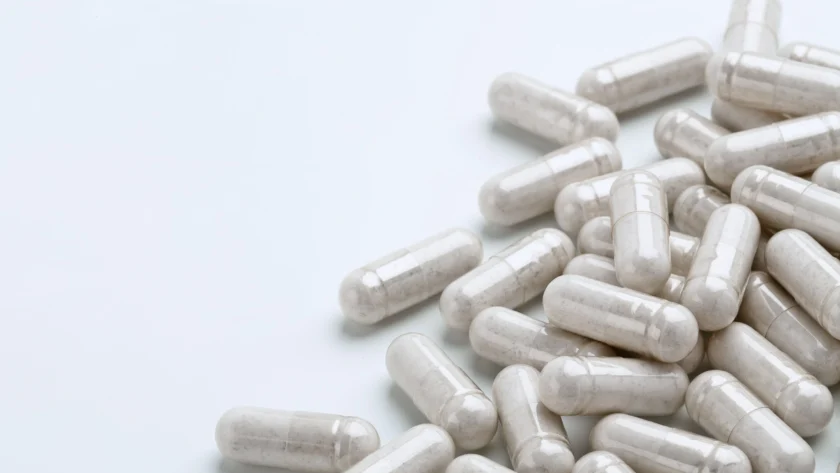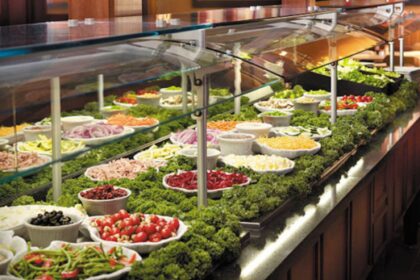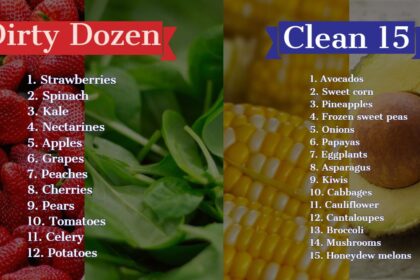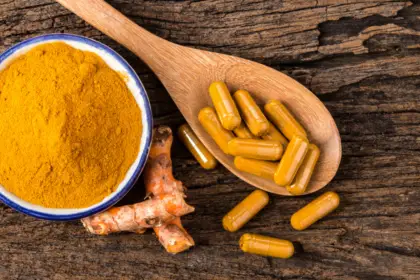It is important to note that too much of a good thing can be bad when it comes to probiotics. This is because the bacteria, viruses, and fungi that make up your microbiome need to maintain a balanced ecosystem, which in turn provides a strong immune system that protects against cancer, infections, and viruses.
Unfortunately, probiotics have become a popular solution for people looking to improve their microbiome, with supplements being added to foods, capsules, and even beauty products. However, the probiotic industry, worth $28 billion dollars, is less tightly regulated than drugs, which means that companies are not required to list all the ingredients in their products.
Research has shown that there is no evidence that probiotics benefit the intestinal microbiota of healthy people, and there is a lack of standardization regarding positive outcomes in studies on the effects of probiotics. Furthermore, there are potential health dangers associated with probiotic use, including harm to people with serious medical conditions, production of harmful substances by the microorganisms, transfer of antibiotic resistance genes, and bacterial overgrowth leading to d-lactic acid production, increased gas, and bloating.
Overall, probiotics may not be worth the money and could potentially be harmful, especially in the long term. It is important to be cautious and informed about the potential risks before using probiotics pills.
Did you know that while probiotics can be beneficial in small doses, Here are some potential dangers of probiotic supplements which do differ from fermented foods drastically:
- A review of seven random control trials found no evidence that probiotics benefit the intestinal microbiota of healthy people.
- There is a lack of quality studies and standardization regarding the positive outcomes that studies on the effects of probiotics are looking for.
- Probiotics can harm people with serious medical conditions, those who are very weak, or have serious infections.
- Possible toxic effects of probiotics include infections, production of harmful substances by the probiotic microorganisms, and transfer of antibiotic resistance genes from probiotic microorganisms to other microorganisms in the gut.
- Some probiotics contain microorganisms that haven’t been listed on the label.
- Long term safety has never been studied or proved. Most studies have focused on just two types of bacteria, namely, Bifidobacterium and Lactobacillus. Limited research on a limited amount of strains has been done.
- Probiotic fermented carbs can lead to bacterial overgrowth, resulting in d-lactic acid production, increased gas, and bloating.
- Probiotics in dietary supplements can establish a reservoir of antibiotic-resistant genes in the human gut. These resistant genes can be easily transferred to pathogens that have the same intestinal habitat, resulting in serious issues.
This all applies to probiotic pills, not fermented foods. Fermented foods are far different and have much more bacteria, nutritional and caloric value as a whole.
Probiotic Supplements vs. Living Fermented Foods
Probiotics are live microorganisms that provide numerous health benefits when consumed in adequate amounts. They are commonly found in fermented foods and drinks like yogurt, kimchi, kefir, kombucha, sauerkraut, and miso. Probiotic supplements, on the other hand, are artificially created and designed to deliver high concentrations of live bacteria to the gut. While both probiotic supplements and fermented foods and drinks are marketed as promoting gut health, it’s essential to understand the differences between them.
Probiotic supplements are a concentrated source of specific strains of bacteria or yeast, which are designed to specific strains of live bacteria to the gut. They are commonly marketed as pills, powders, or liquids and are available in many health food stores, pharmacies, and online retailers. Probiotic supplements may be useful for people who are unable to consume enough probiotics through their diet. They are also beneficial for individuals with gastrointestinal issues, including diarrhea, constipation, and irritable bowel syndrome (IBS). However, it would be much better if fermented foods were consumed as the amount of probiotics in live foods is far higher than any pill by an order of magnitude of around 200x!! Believe it or not.
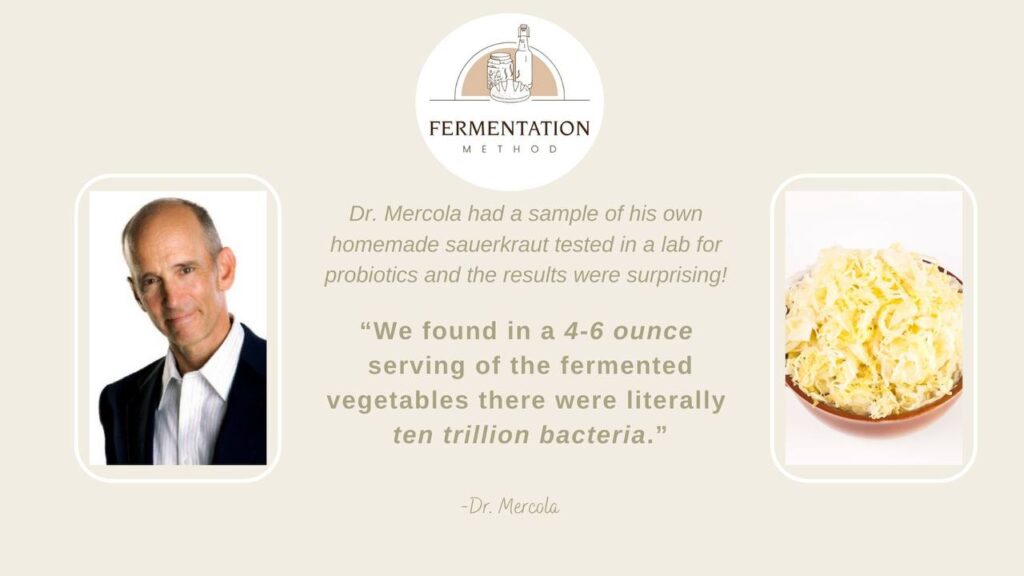
To put this into context, an average probiotic supplement may have 50 billion CFU’s of bacteria in it and this is the entire bottle compared to ten trillion bacteria in a single four ounce serving of sauerkraut. Quite the difference in value isn’t it!?
Visit FermentationMethod.com to learn more about fermenting your own foods and drinks from your kitchen. A video library with recipes and step-by-step how to tutorials on how to do this.
However, there are several drawbacks to using probiotic supplements. Firstly, the quality and effectiveness of probiotic supplements can vary significantly between brands. Secondly, many probiotic supplements contain only a limited number of bacterial strains, which may not be enough to restore the balance of gut bacteria adequately. Thirdly, some strains of bacteria used in probiotic supplements may be inappropriate for certain individuals or may cause adverse effects such as bloating, gas, and upset stomach.
On the other hand, fermented foods and drinks are an excellent natural source of probiotics, as well as other essential nutrients such as enzymes, fiber, and calories. Fermented foods and drinks are created by allowing natural bacteria and yeast to feed on the sugar and starch in the food, producing lactic acid, which acts as a natural preservative. The fermentation process enhances the food’s nutritional content, making it more digestible and nutrient-dense.
Fermented foods and drinks are widely available and can easily be incorporated into any diet. Yogurt, for example, is an excellent source of probiotics and is readily available in most grocery stores. Kimchi, a traditional Korean dish made from fermented vegetables, contains high levels of probiotics and is an excellent source of vitamins A and C, as well as iron and calcium. Kefir, a fermented milk drink, contains a diverse range of probiotic strains and is rich in vitamins B1, B12, and K2. Kombucha, a fermented tea, contains probiotics and antioxidants, which help to boost the immune system and protect against inflammation and oxidative stress.
Compared to probiotic supplements, fermented foods and drinks have several advantages. Firstly, fermented foods and drinks contain a much wider range of bacterial strains, which can help to restore the balance of gut bacteria more effectively. Secondly, fermented foods and drinks are a natural source of probiotics, which means that the bacteria are more likely to survive the digestive process and colonize the gut. Thirdly, fermented foods and drinks contain a range of other nutrients that are beneficial for health, including enzymes, fiber, and calories.
In addition to their probiotic content, fermented foods and drinks have been associated with several other health benefits. Studies have shown that consuming fermented foods and drinks can help to reduce inflammation, boost the immune system, and improve digestion. They have also been linked to lower rates of obesity, type 2 diabetes, and cardiovascular disease.
In conclusion, while both probiotic supplements and fermented foods and drinks can be beneficial for gut health, fermented foods and drinks are generally considered to be a healthier and more natural source of probiotics. They contain a wider range of bacterial strains, as well as other essential nutrients that are beneficial for health. Incorporating fermented foods and drinks into your diet can help to improve gut health.
Now, for the first time ever you can access recipes and step-by-step instructions for how to make a variety of fermented foods and drinks from home including sauerkraut, kimchi, salsa, pickles, salsa, sourdough bread and more! Visit FermentationMethod.com to learn how to turn your kitchen into a probiotic factory!
Recommended Reading:
